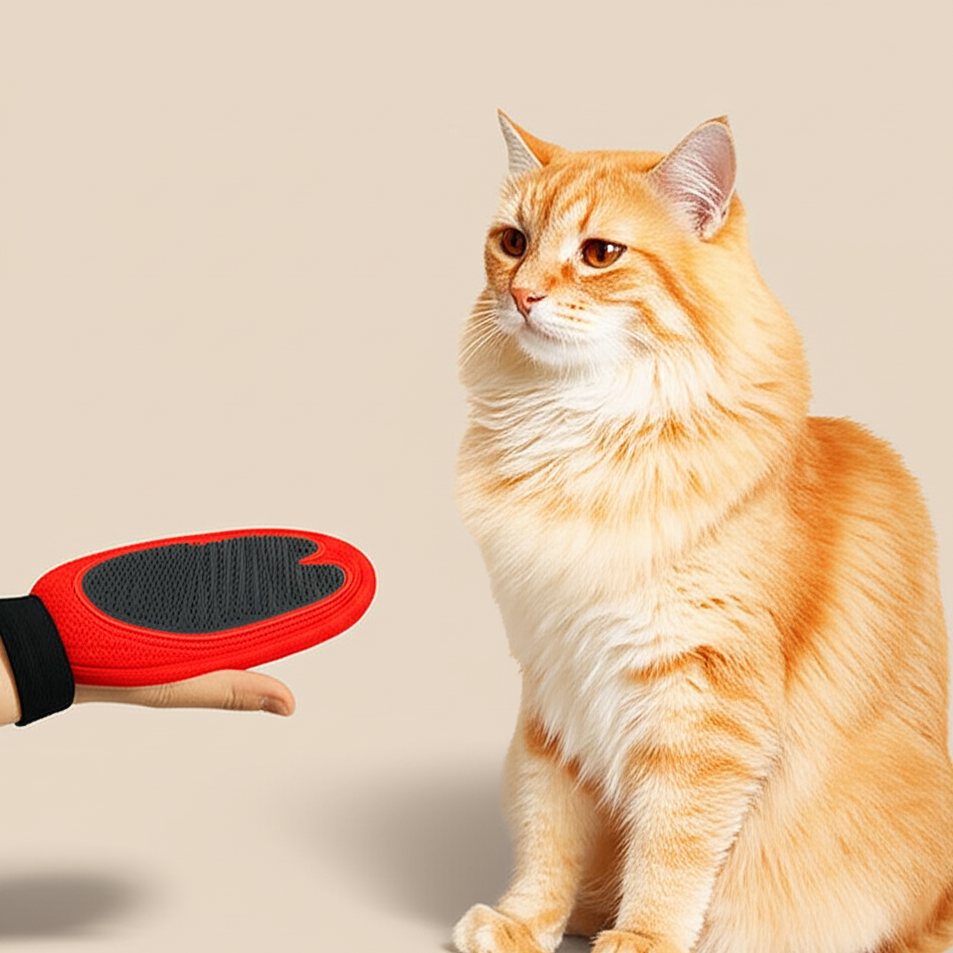
Natural Flea Treatment for Senior Cats That Works
Share
As our beloved cats age, their bodies become more sensitive, and their immune systems less robust. Senior cats often suffer more from common issues that younger cats shrug off, and flea infestations are no exception. Conventional flea treatments, while effective, can sometimes be too harsh for older felines. That's why many pet owners seek a gentler, yet effective alternative: flea treatment for cats that is natural and safe for seniors.
Why Flea Treatment for Older Cats Needs Special Care
Fleas are not just an itchy annoyance. For senior cats, they can lead to severe health complications. Flea bites may trigger allergic reactions, cause dermatitis, or lead to excessive grooming and hair loss. Even more serious, fleas can carry tapeworms and blood-borne diseases, which pose a greater risk to older cats with weaker immune systems.
Because senior cats are more vulnerable, it is crucial to tackle flea problems promptly and safely. Many commercial flea treatments contain potent chemicals that may affect the liver and kidneys—organs that naturally become more sensitive with age. Therefore, turning to natural flea treatment for cats isn't just a holistic trend, but a practical necessity.
Benefits of Natural Cat Flea Remedies for Seniors
Natural remedies for flea treatment, offer a gentler, non-toxic way to manage flea infestations. They minimize chemical exposure and reduce the risk of side effects. Senior cats often benefit from such treatments, especially those suffering from chronic illnesses or taking regular medications.
A safe home remedy for cat fleas should:
-
Kill or repel fleas effectively
-
Strengthen the cat’s skin and coat
-
Avoid unnecessary chemicals
-
Be easy to apply and maintain
Top Natural Flea Treatments for Cats That Work
Diatomaceous Earth for Cat Flea Control
Diatomaceous earth is a fine, chalky powder made from fossilized remains of tiny aquatic organisms. It's completely safe when used externally and dehydrates flea exoskeletons, killing them on contact. Simply dust a small amount along your cat's bedding, carpeted areas, or favorite resting spots. Avoid using it directly on the cat unless recommended by a vet.
Apple Cider Vinegar Spray
Diluted apple cider vinegar can make your cat's skin less hospitable to fleas. Mix equal parts of apple cider vinegar and water in a spray bottle and apply it to your cat's fur (avoiding the eyes and ears). While it doesn’t kill fleas outright, it acts as a strong deterrent and is completely natural. Its a tried and tested remedy for flea treatment.
Neem Oil as a Flea Repellent for Cats
Neem oil is derived from the neem tree and has anti-parasitic properties. When used properly, neem oil can soothe skin irritation and repel fleas. Mix a few drops in a carrier oil like coconut oil, and gently rub it into your cat's fur once or twice a week.
Safe Use of Essential Oils
Some essential oils, like cedarwood or rosemary, are effective flea repellents. However, they must be used with extreme caution around cats. Always dilute them heavily and never use tea tree oil, peppermint, or citrus oils, which can be toxic. Consulting a veterinarian before using any essential oil treatment is essential.
Grooming and Maintenance: A Must with Flea Treatment for Cats
Even the best natural flea treatment for cats must be paired with consistent grooming and cleanliness. Regular brushing helps remove fleas and eggs while distributing natural oils that protect your cat's coat. Using a flea comb daily during infestation periods can significantly reduce the number of fleas.
-
Wash bedding weekly in hot water
-
Vacuum carpets and furniture thoroughly
-
Bathe your cat if tolerated, using natural flea-repelling shampoo
If your cat dislikes baths, use a damp cloth with diluted apple cider vinegar or flea-repellent wipes.
Natural Flea Collars and Home Sprays
Commercial flea collars often contain strong chemicals, but natural alternatives are available. These collars typically use essential oils (like cedarwood or eucalyptus) embedded into the fabric or plastic. Always use collars specifically made for cats.
You can also make a homemade flea spray using herbs like lavender, rosemary, and lemon steeped in water. Spray lightly around your home or on cat bedding.
Boosting Immunity Through Diet for Flea Resistance
A cat with a healthy immune system is less likely to suffer from a severe flea infestation. Feed your senior cat a balanced, high-quality diet rich in omega-3 fatty acids, antioxidants, and taurine.
Some pet owners add brewer's yeast and garlic to their cat's diet, believing these deter fleas. However, garlic can be toxic in high quantities. Always consult a vet before introducing supplements.
When to Seek Veterinary Help
Natural flea remedies for cats work well for prevention and mild infestations. But see a vet if your cat shows:
-
Persistent scratching and hair loss
-
Signs of flea allergy dermatitis
-
Pale gums (may indicate anemia)
-
Lethargy or sudden weight loss
A vet can recommend a safe, low-dose flea medication compatible with your cat’s age and health condition.
Preventive Flea Care for Cats: The Best Long-Term Strategy
The most successful flea treatment for cats is one you use consistently. Natural remedies often require more frequent application than chemical treatments, but they pose fewer risks.
Combine several approaches—like diatomaceous earth, grooming, and flea-repelling sprays—for maximum effectiveness. Monitor your senior cat for signs of discomfort or excessive grooming.
Final Thoughts
Choosing a natural flea treatment for cats is about more than comfort. It's about long-term health and safety, especially for older cats. With a little patience and consistency, your senior feline can live a flea-free, healthy life without harsh chemicals.
Always consult a vet before starting new treatments, especially for older or chronically ill pets. A holistic approach combining nutrition, cleanliness, and safe flea repellents is your best bet for keeping your cat happy and healthy.
